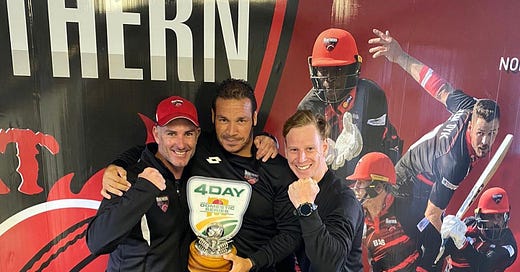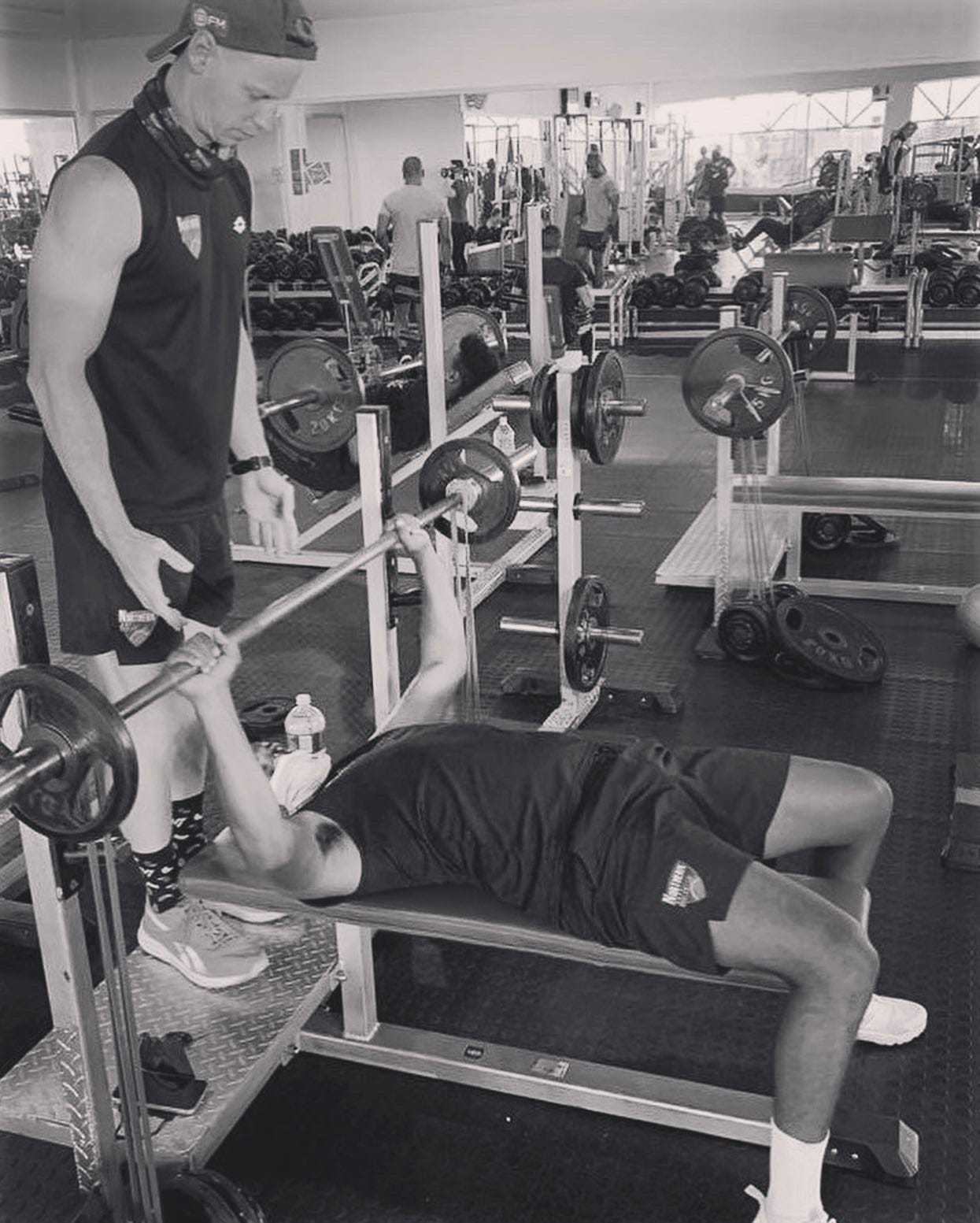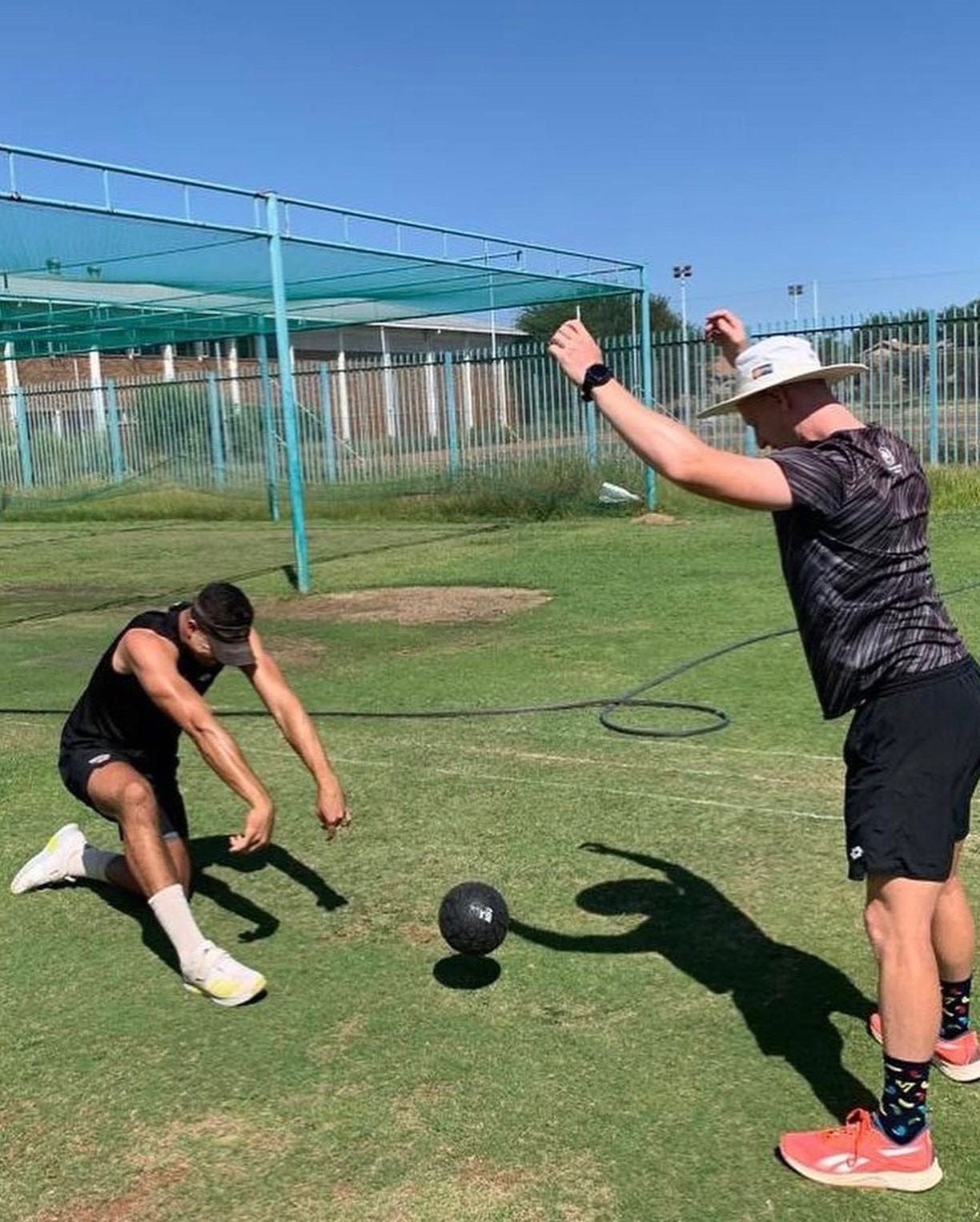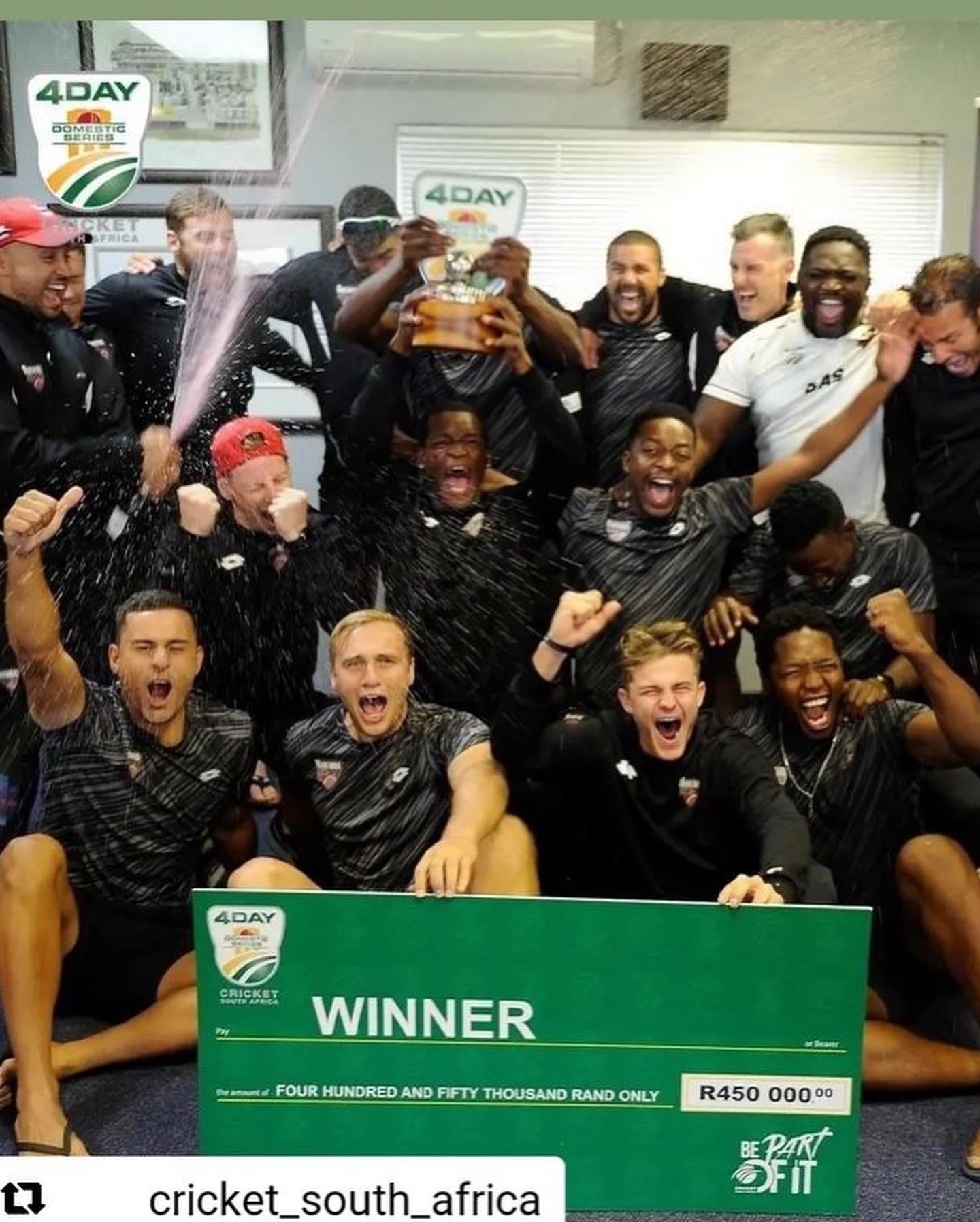"Breaking down the stereotype and mindset of the players that believe that the Strength and Conditioning Coach is there to make them throw-up, feel like death, and dread every fitness session"
Talking Strength & Conditioning in Cricket with Northern Cape Heat's Strength & Conditioning Coach.
Sports is like politics, there is always a debate or discussion around and or about politics and sport is no different. Cricket is one of those sports code that tend to have a lot of people talking but very seldom do these debates and discussions touch on other fundamental aspects of cricket. Strength and Conditioning is one of those aspects of cricket that are seldom spoken about. Cricket, much like any other sporting code that has been around for years, has evolved over the years. Cricket now, has different requirements to cricket back in 1994. For a while cricket had been known as a sport that does not require much fitness, strength, and conditioning but things have since changed. Conditioning plays a vital role in the enhancement of performance and reduction of chances of injury.
I recently had the pleasure of having a chat with Northern Cape Heat’s Strength and Conditioning coach, Storm Clark. Northern Cape Heat are the current champions of Division 2’s 4-day competition as well as One Day Cup runners up. I got to find out a bit more about Storm, what he does and his opnion on Strength and Conditioning. 29-year-old, East London born, Storm Clark says he has played cricket for as long as he can remember and looked up to players like Lance Klusener, Shaun Pollock, and Dale Steyn. Storm went to Hudson Park before relocating to Gqeberha, where he finished high school at Pearson. As a matriculant, in 2011 Storm joined Madibaz Cricket Club where he played until 2017. One of Storm’s proudest moments as a schoolboy cricketer is his 7 wickets for 5 in 5.3 overs for Pearson High School. He has also worked for one of the famous cricket schools in the country, Grey College in Bloemfontein.
After getting to know a bit about Storm, I asked him questions about his trade, Strength and Conditioning. My Questions and His answers below.
1. For someone who does not know, how would you describe the job of a Strength and Conditioning coach?
A strength and conditioning coach is someone who is involved in almost all aspects of a team’s day to day functioning. As a strength and conditioning coach, you are involved in periodising training, warm-ups, cool-downs, gym sessions, sprinting sessions, fitness sessions, assisting the coaches with hitting, throwing, catching, rehabilitation, reports, workload management, fitness testing, treatments if there isn’t any other medical practitioner involved.
I do not see myself as a strength and conditioning coach, but rather as an Athletic Performance Coach. The influence of a strength and conditioning coach in the modern world on an individual athlete or the team is way more than just strength and conditioning.
2. What inspired you to get into Strength and Conditioning?
Every child has a dream of what they want to be one day when they are big, mine was to be a professional cricketer. During my time at university, I realised that dream was a bit out of my talents and capabilities, and I was studying a course that would allow me to be a part of a professional team but in a non-playing capacity. Therefore, I shadowed, volunteered, and learned from individuals within strength and conditioning and since then I have loved doing what I am doing. And my opportunity arose when the Nelson Mandela University strength and conditioning coach at the time had moved onto a new opportunity, and I was called by the head coach at the time and asked if I would like to take up the role. I was still studying at the time, but I jumped at the opportunity and my first task was to accompany the Madibaz team to Varsity Cricket in January 2018.
3. What would you say are the key factors of Strength and Conditioning in cricket?
Most importantly, breaking down the stereotype and mindset of the players that believe that the strength and conditioning coach is there to make them throw-up, feel like death, and dread every fitness session, whether in the gym or on the field. Once a strength and conditioning coach understands what and how to achieve results without “punishing” athletes, adherence to fitness improves, mindset towards fitness improves and athletes’ performance improves.
Personally, I see cricket as a power sport. Consisting of multiple bouts of power movements performed over an extended duration, with rest periods between each bout. Therefore, important factors would be speed, power, strength, and cardiorespiratory endurance.
4. How does Strength and Conditioning benefit bowlers, batters, keepers, and fielders?
I like to take the sport skill out of the equation when approaching strength and conditioning of athletes. Their sport skill needs to be concentrated on and improved at skills practice. Whether you are a bowler, batter, keeper, and fielder, if I can improve a cricketer to be more athletic, when they step onto the field to perform their practiced skill their ability to perform that skill will have improved. I evaluate my work as successful, if they can perform the skill, more energy efficiently, can perform the skill faster, more powerfully, and for longer periods. And do that consistently from game to game over the course of a season. In general, strength and conditioning improves an athlete’s ability to perform their sporting skill knowing that they are physically prepared, and thus allowing them to express their talents on the field freely.
5. What would you say is the toughest part of being a Strength and Conditioning Coach? (Or a challenge)
Athletes that have the mindset of fitness is punishment, which stems from previous bad experiences. These athletes don’t trust the process and don’t trust the strength and conditioning coach, adherence to the process is minimal, and this affects effort, motivation, and willingness. Breaking down barriers of these athletes is important and understanding what they may enjoy in the gym or on the field and incorporating these things into their individual athletic development plan while still achieving the desired adaptation of each phase of the process, with these added minor differences between athlete to athlete.
And the not mentioned, remuneration topic. Strength and conditioning coaches’ remuneration does not truly reflect the amount of work done. The first step to changing this is raising awareness about the undervalued nature of the industry.
6. What are your thoughts on the general Conditioning of cricketers in the country?
I can only comment on my squad, as each strength and conditioning coaches’ approach to strength and conditioning is different. My squad are in their second phase of their preparation for the upcoming season and every day we are all improving. The cliché of “Rome wasn’t built in a day” well I say neither were athletes.
Cricket South Africa has minimum fitness requirements to be eligible for selection. And I believe all athletes and strength and conditioning coaches are working towards achieving and surpassing these minimum requirements.
7. Looking at the overall Conditioning of cricketers in the world, would you say Strength and Conditioning is having an impact on cricket and why?
I believe strength and conditioning is impacting on the world of cricket immensely and positively. Cricketers have become athletes, and this is important when looking at the amount and intensity of cricket being played nowadays.
The leaders in the strength and conditioning world for cricket are the teams that have been producing results at major ICC tournaments, England, India, Australia, and New Zealand. I mention these nations because I have been privileged enough to have connected with multiple strength and conditioning coaches working within and for these nations and have been lucky enough to have learned tremendous amounts from them and their approach to strength and conditioning. And have since adapted my approach and thus improved the way I look at strength and conditioning.
8. What is the most important thing you would say a Strength and Conditioning Coach needs to know?
Knowing what adaptation/stimulus you are trying to emphasize with each session, each program, each phase of the season, what is the residual effect of different components of training and knowing when to program specific components based on the residual effects. Cricket specifically, knowing what stimulus is required in preparation for each different format being played at different parts of the season.
9. Do you think it is important for a Strength and Conditioning to have played or have deep knowledge about a sport they are involved in?
In the modern game, as a cricket strength and conditioning coach, your role is so diverse, being able to add value by assisting with fielding practice makes you more employable than someone with more qualifications for example, therefore it is beneficial to have played or have extensive knowledge about the game to understand the demands of the sport as well as offer additional skills to the coaching structures.
10. Is there anything else you would like to share about Strength and Conditioning?
My advice to future strength and conditioning coaches: Connect, learn ask questions and always be willing to improve. Know how to filter knowledge and take what may work for you and your philosophy and discard the rest. You may learn a massive amount of theory at university, but experience and practical skills are the most important.
Strength and Conditioning coaches play an integral part in the success of a team in cricket. Many Strength and Conditioning coaches can corroborate the significance of having a Strength and Conditioning Coach that is able to assist beyond their own field of work. A Strength and Conditioning Coach that has knowledge of the sport is invaluable. Storm is a level 2 coach himself which means he offers a bit more than just strength and conditioning. He can give throw downs, chuck balls for batters when needed or maybe help with fielding drills before a match.
With the amount of cricket being played and growing intensity of the game together with a swamped-up calendar for cricketers these days, Strength and Conditioning has become invaluable. Strength and Conditioning coaches are there to help players improve not only in fitness but also in performance.






